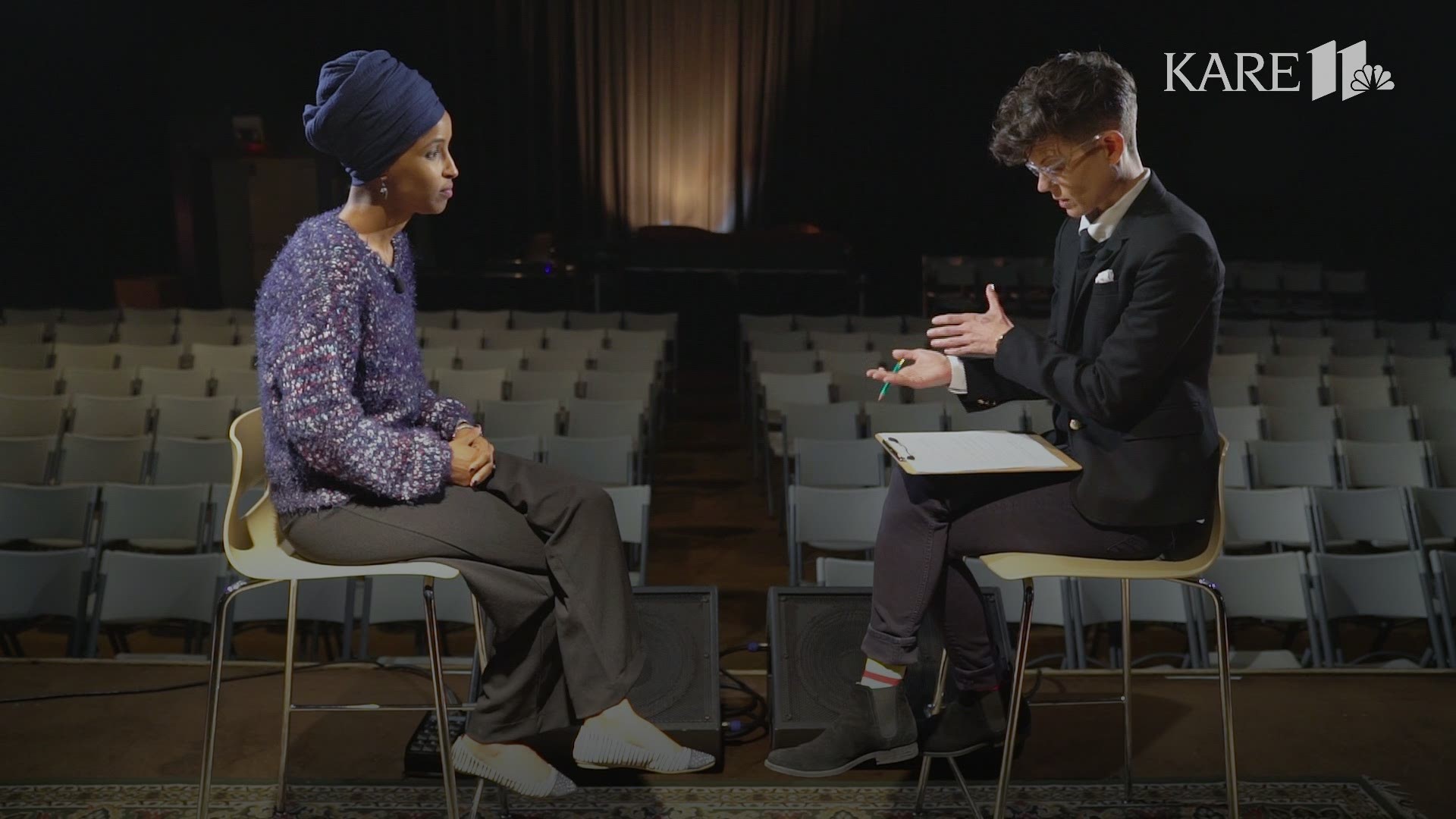MINNEAPOLIS — Rep. Ilhan Omar has stayed in the national and international spotlight consistently in recent months, with controversy surrounding some of her comments.
The Minnesota congresswoman faced blowback for suggesting on Twitter that U.S. support for Israel in the struggle with Palestinians is "all about the Benjamins.”
In the days after, she has been called many things - including anti-Semitic. So KARE 11's Jana Shortal took some of these questions directly to Omar, in a one-on-one interview.
ANTI-SEMITISM
Shortal: Are you anti-Semitic?
Omar: Absolutely not. I have always believed that it is important for those of us who really are marginalized in all of our societies to recognize there are people who benefit from division. Everybody wants to pit us against one another in order to maintain power. So it is easy for people to say, “Look over here,” and that’s what the people like this president and many of the leaders within the Republican party are doing. There is a rise in hate in this country, and that's coming from white supremists.
'IT'S ALL ABOUT THE BENJAMINS'
Shortal: On February 10 you responded to a tweet with the words, "It's all about the Benjamins baby." Do you regret that tweet?
Omar: Regret is a strange word. I think you know, money really is in the center of our politics. We prioritize the needs of the special interests and we often forget that the people who we should be serving are the ones who get us elected. Each one of us in Congress or in any body represents a collective voice of constituents and I feel like in the actual makeup of political power they get to be treated as the least powerful because they don’t have the resources to be advocating for themselves. So my mission really is to make sure that the people recognize that they have power and that moneyed interests have less.
Shortal: Specific to the tweet though, it upset many Jewish Americans, many Jews around the world, and a lot of Jews in the 5th district. What do you say to them?
Omar: That for me is the regrettable part. And what is regrettable about that for me is that sometimes you could be so blinded to how certain words could stir up feelings of pain for people. I was in conversations with Congressman Keith Ellison and he was describing all these words that hold so much negative feelings for, that stir up negative feelings for the African American community. And I said, “None of those things really would ever make me feel any sort of way.” And he said, “Well you’re an African immigrant.” And so often times you’ll hear people say, "As a Jewish person I’m not hurt by Ilhan’s words," and then you’ll hear people say, "As a Jewish person I’m hurt by Ilhan’s words." And that is true because we all have our own ways of interpreting words and we have our own biases that sometimes help us navigate the world. And I’ve never really imagined myself walking into a situation where anything that I would do or any words that I would say would stir up hate for anyone.
Shortal: You apologized for that tweet.
Omar: I did.
Shortal: Do you still believe in your apology? Would you apologize again today?
Omar: I would. I think anytime somebody stops you and says, "What you did or what you said has hurt my feelings," I think you are not a good human if you do not pause and take that in and recalculate it in your head and reach a conclusion that tells you that you should apologize for those feelings that you hurt. You could re-assert, right, whatever point you were trying to make in that conversation, but you cannot not acknowledge the pain that people might feel.
Full Q&A:

